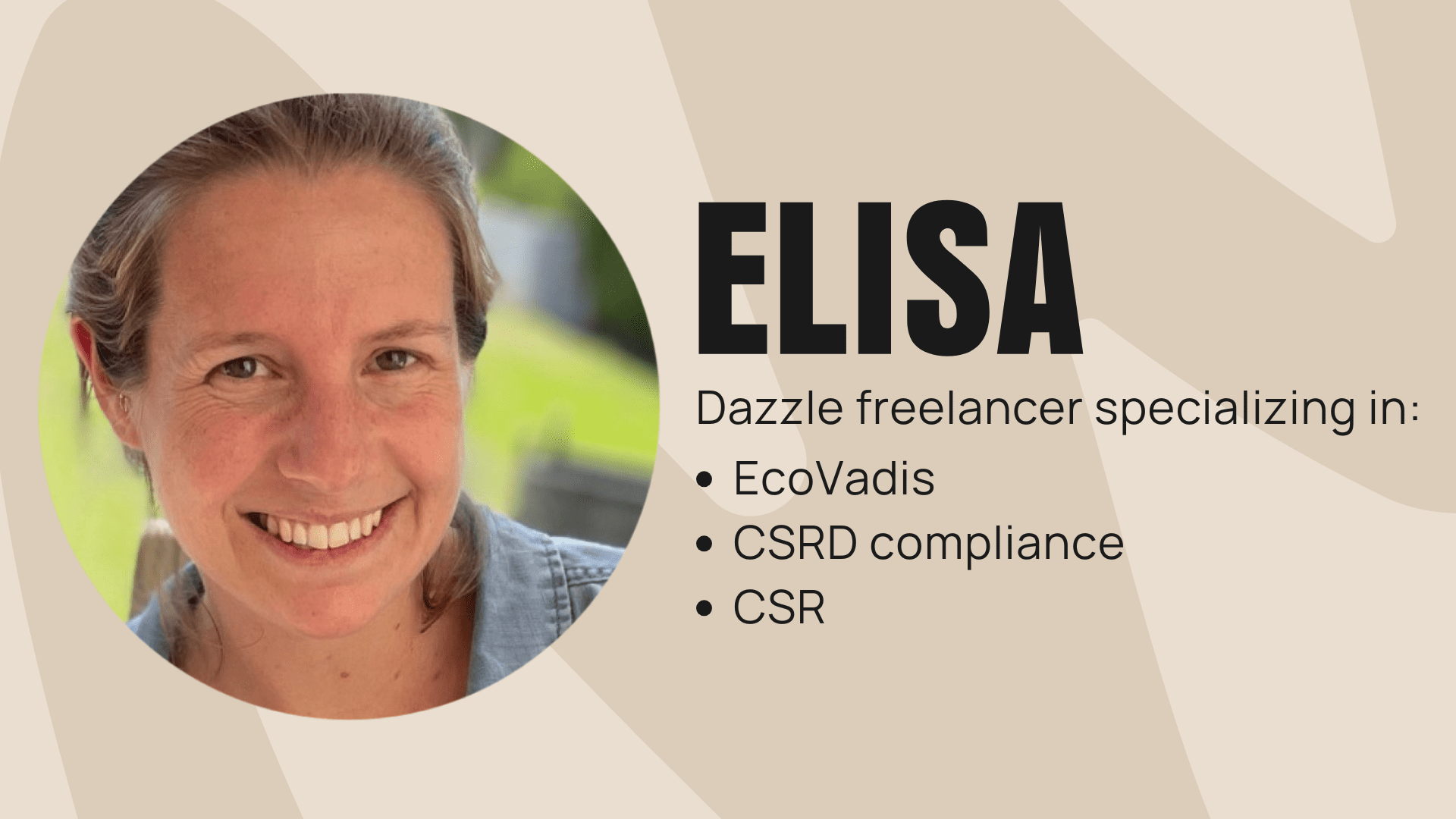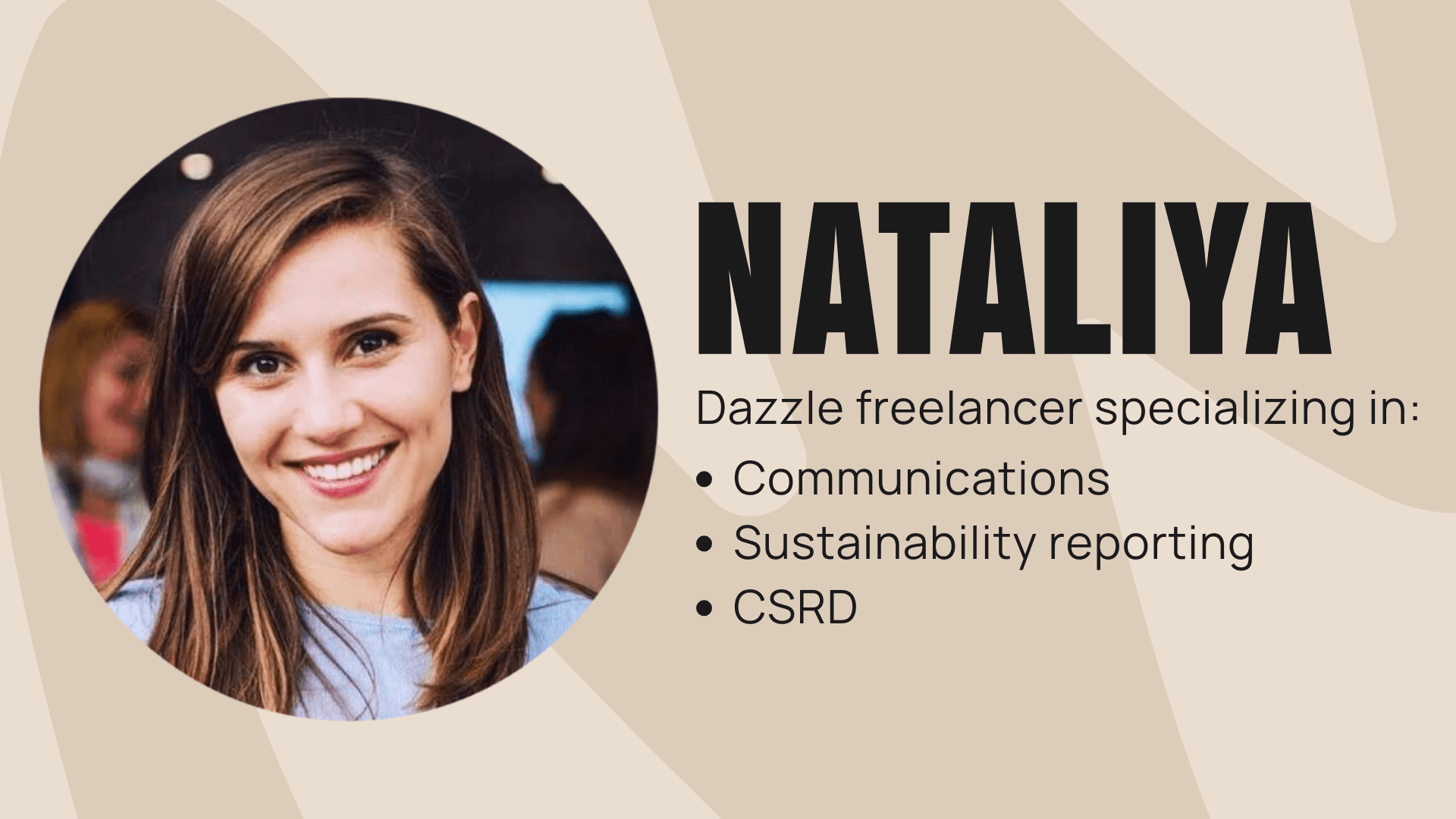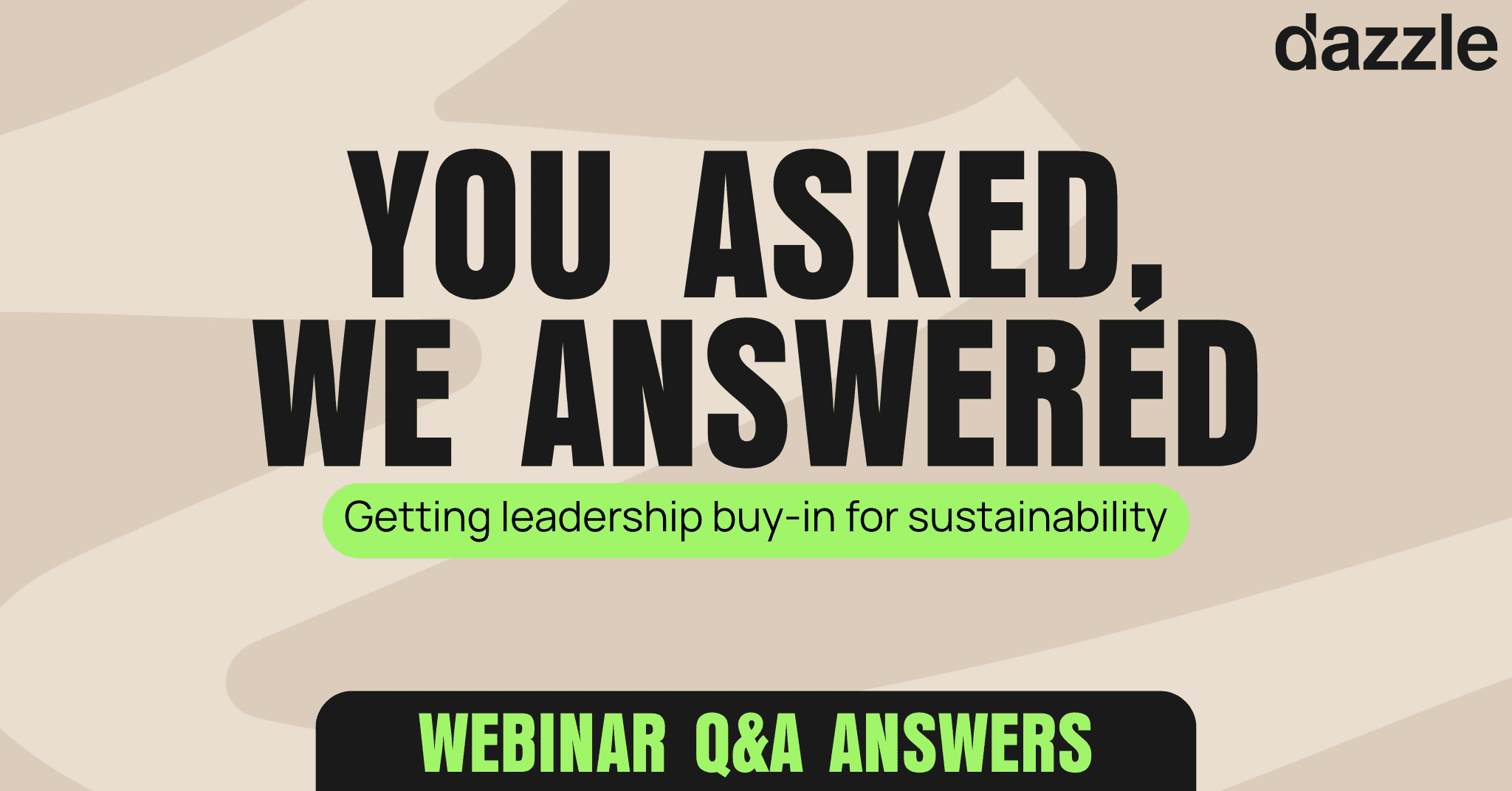About the author
Elisa Gómez González is an Environmental Engineer with an MBA in Sustainability Management Systems and Circular Economy. A certified B Corp Leader, EcoVadis Consultant, and GRI Practitioner, she combines strategic vision with hands-on experience.
As Head of Sustainability and Impact for international companies, Elisa has led multidisciplinary teams and developed strategies that drive measurable results and external recognition.
In parallel, she has built a strong freelance portfolio, supporting organizations of all sizes on a project basis to strengthen their ESG performance and navigate complex sustainability frameworks. She has partnered with companies such as RGF Staffing, Unilever, Ansell, Merz, Ecobat, and Sprinklr.
Known for her ability to turn complexity into clarity, Elisa helps businesses build robust, coherent, and actionable sustainability strategies: ones that are both internally effective and externally validated. A published author and lecturer, she bridges sustainability ambition with real, practical impact.
If you feel you could use Elisa’s expertise, contact Dazzle today, and we will put you in touch with her within 48 hours.
Getting a strong EcoVadis score isn’t just about uploading documents and hoping for the best. I’ve seen many companies underestimate the process, rushing their submission, overlooking key sections, or missing out on easy points simply because they didn’t understand what EcoVadis is really looking for.
The result? Lower scores that don’t reflect the company’s actual sustainability performance, inevitably leading to unnecessary frustration when valuable efforts go unrecognized.
But when approached strategically, the EcoVadis assessment becomes much more than a compliance exercise. It’s a framework for understanding your sustainability maturity, identifying gaps, and building stronger, more credible systems.
So in this guide, I’ll walk you through practical steps to strengthen your next submission: from understanding your industry risk profile to formalizing policies, selecting the right documentation, and planning for continuous improvement.
1. Understand the EcoVadis framework and your industry risks

Always check your industry risk profile to know the importance and weight each theme and subtopics have on your assessment. This is essential for you to know where to focus your efforts and where it’s not worth it.
2. Gather documentation and involve the right people

Involve key people within your organization per theme early on in the process.
Provide them with the questionnaire components for their section and work together to come up with the most representative and complete documentation that currently exists.
3. Strengthen policies and implementation evidence

Check the scoring principles for each section (policies, measures, reporting, etc), and cross-check that your documentation covers them.
Far too often, companies do things but don’t have it written down anywhere. Find a way to formalize it into a document. Example: policies need a scope, review mechanism, and governance, amongst other criteria.
4. Carefully populate the EcoVadis questionnaire

Ensure all documentation meets the quality standards (logo and date mandatory), and that your 55 document limit is composed of strong evidence-based documentation.
Remember, CAR question documents are not scored, so avoid uploading files intended only for CAR. Use your document slots for evidence that contributes directly to your score.
5. Make a final quality check before submission

Always do a thorough check before submitting. It’s a long questionnaire, and you probably made some mistakes or forgot to attach some documents to the relevant questions.
6. Monitor progress and plan for continuous improvement

Always check your scorecard result as it’s a great source of improvement. And also, you might catch some errors which you can definitely appeal for. Engaging an expert here is highly recommended.
Turning your EcoVadis assessment into a roadmap for real progress

Maximizing your EcoVadis score isn’t easy, and it’s not something most companies can do well without guidance.
The process can be complex, detailed, and time-consuming, which is why working with an EcoVadis expert can make all the difference. They can help you navigate the framework, understand exactly what assessors are looking for, and make sure your documentation, policies, and processes are aligned with scoring principles from the start.
Of course, getting the assessment part alone right isn’t enough. You also need the substance behind it. Real progress comes when your sustainability actions, reporting, and governance structures genuinely reflect your company’s values and impact. That’s when the score stops being just a number and starts representing meaningful performance.
With the right support and mindset, EcoVadis becomes more than an assessment tool: it becomes a motivator, an organiser, and a roadmap for real progress.
It helps turn sustainability from a reactive task into a proactive strategy for improvement, credibility, and long-term success.



